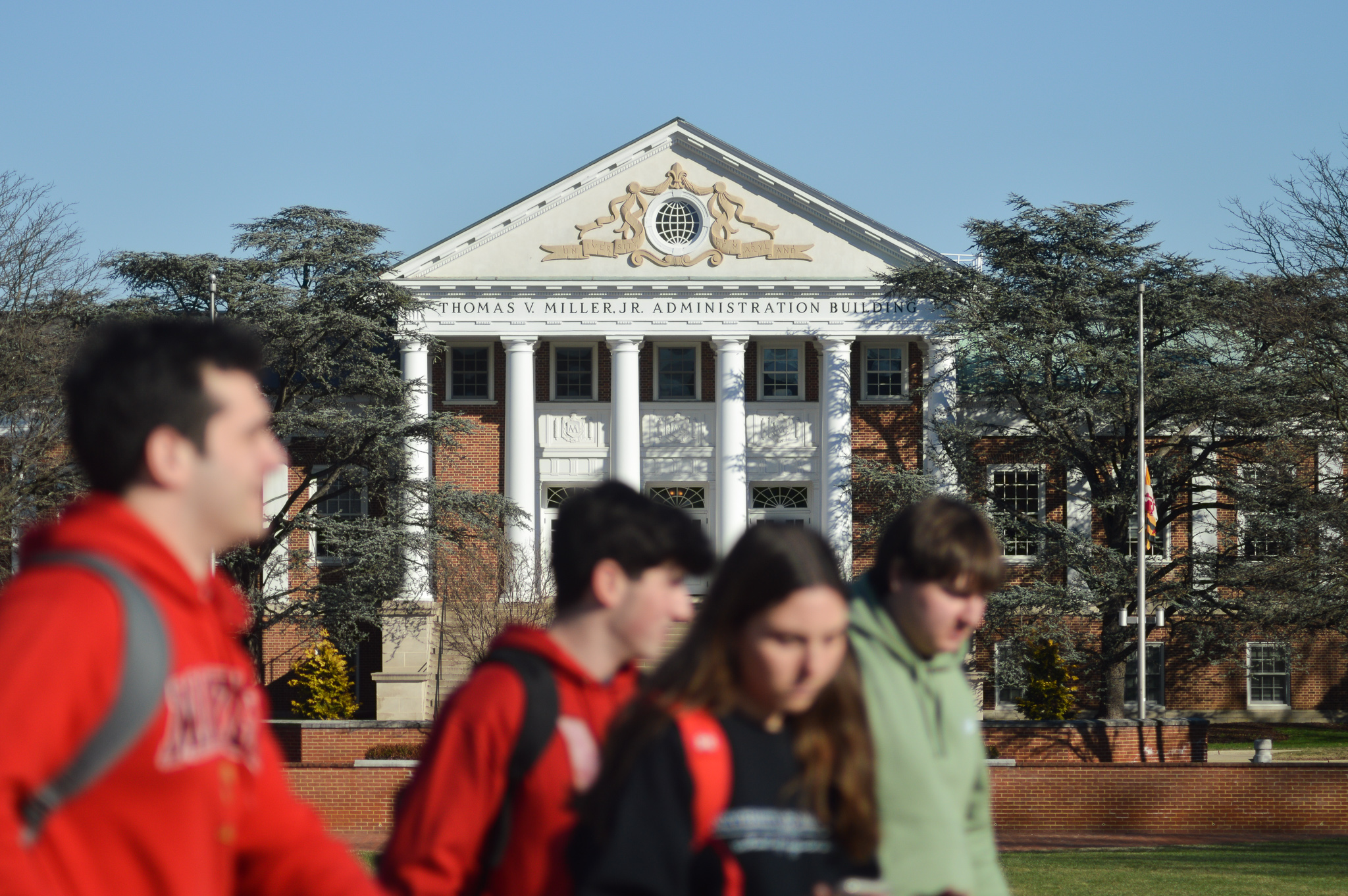The University of Maryland Senate discussed considerations for a fall break and approved several new academic programs and departments on Tuesday.
Professor and associate provost Betsy Beise provided an update on findings from a work group exploring the benefits and drawbacks of adding a break to this university’s fall semester calendar.
The work group debated whether to have two days with no classes in early October or have no classes the Monday and Tuesday before Thanksgiving, she said. The group decided in favor of the October break because it would break up a long stretch of classes, Beise told the senate.
Beise and the work group will bring the proposal for an October two-day break to a smaller team and the registrar’s office to consider creating a formal change to this university’s calendar.
This university could have a fall break starting in 2025 at the earliest, Beise said.
Some concerns with adding a fall break include implications for lab courses, possibilities of learning loss and disruptions to other parts of the calendar, Beise said. Some of this university’s professional programs utilize a 12- or seven-week calendar, and it would be more difficult to add a break to them.
Beise added that any fall break days would not be considered holidays for university staff, posing further leave considerations.
[Public officials, election experts discuss voting in 2024 at UMD summit]
“Adding holidays, actual administrative leave permanently is a much, much bigger issue to manage,” she said. “So while it does provide some respite for students and faculty, it doesn’t necessarily help all of our staff.”
Adrienne Mayo-Brown, a senator representing exempt staff from colleges, expressed concerns about how the fall break would exclude staff members.
“The notion that staff members wouldn’t have the same need for a break for mental health, for family purposes, can be very demoralizing,” she said. “It can create an environment where staff feel even less appreciated.”
Senior vice president and provost Jennifer King Rice convened the work group last spring after the senate’s academic procedures and standards committee recommended this university explore adding a fall break.
The work group looked at 17 peer and regional universities — primarily other Big Ten schools — and found 12 of them have a fall break. Four of those universities provide an entire week off for Thanksgiving while seven universities have a two-day break in October, Beise said.
This university’s fall semester would have to start earlier in order to accommodate for the break, but the end date would remain the same.
Through a survey last month, the work group found faculty and administrators largely support a fall break as long as they have time to prepare for it, Beise said.
Ross Miller, a senator representing tenured faculty in the public health school, asked Beise if the work group surveyed students on whether they would prefer a break earlier or later in the fall.
[UMPD has conducted 145 traffic stops for micromobility vehicles this semester]
Beise said the work group did not do a formal survey of students, but the group includes members from the Student Government Association and the Graduate Student Government.
Rice added that she shared the proposals with her student advisory groups, who strongly supported adding an October fall break.
“Many people mentioned that they thought this would be a very important opportunity, that the benefits outweigh the inconveniences and that having that period of rest in the middle of the semester would be very valuable,” Beise said.
The senate on Tuesday also approved proposals to establish a bachelor’s program in international relations and create a department of global, environmental and occupational health.
The new major will replace the existing international relations concentration in the government and politics major.
The senate also voted to change the classification of its quantum computing graduate program from a professional studies program to a science program. The switch allows international students on F1 visas to remain in the United States for longer after graduation. The vote followed a similar decision last semester about three other graduate programs.



